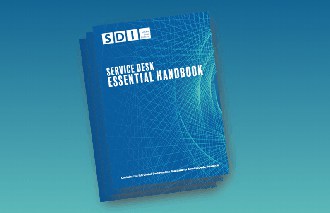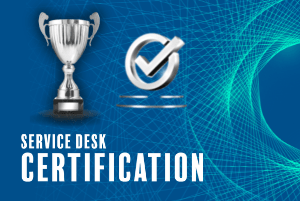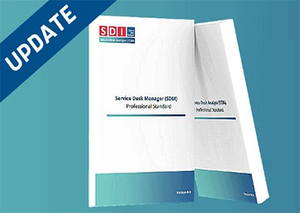Training and competency for service desk staff, according to ITIL4®
The service desk is the key to successfully achieving business strategy in the digital era. The service desk works hand in hand with other teams such as development or support in order to serve the business, customers and users, identifying their needs and requirements to accomplish what ITIL4® calls ‘value co-creation’.
According to ITIL4® Foundation, Chapter 5 ITIL management practices “service desk staff require training and competency across a number of broad technical and business areas. In particular, they need to demonstrate excellent customer service skills such as empathy, incident analysis and prioritization, effective communication, and emotional intelligence. The key skill is to be able to fully understand and diagnose a specific incident in terms of business priority, and to take appropriate action to get this resolved, using available skills, knowledge, people, and processes.”
The Role of the Service Desk In The Value Chain
According to ITIL4®, the image above represents a heatmap of the contribution of the service desk to value chain activities. It shows the steps an organisation undertakes in the creation of value, with each activity transforming inputs into outputs.
You will notice that the ‘Engage’ and ‘Deliver and Support’ activities are a darker purple than the other activities. We understand, therefore, that the service desk contributes more to the service value chain during those activities.
The ‘engage’ phase of the service value chain is about establishing a shared understanding of stakeholder needs, providing transparency, and creating and maintaining great relationships with all involved parties. The ‘deliver and support’ phase of the service value chain ensures that services meet stakeholder expectations and are delivered according to any agreed specifications.
Upskilling The Service Desk Analyst
It is recommended that service desk staff receive specific training to develop technical and soft skills, particularly good service attitude, empathy, effective communication, emotional intelligence, listening, problem-solving, among others. It is these skills that can be developed with the SDI® Service Desk Analyst (SDA) qualification. The key skill of a service desk analyst is to be able to fully understand and take appropriate action using available skills, knowledge, people and processes – all of which is covered in the SDI® Service Desk Analyst (SDA) qualification syllabus.
SDI’s Service Desk Analyst training course provides delegates with the soft skills and competencies required to communicate effectively, build rapport with stakeholders and resolve conflict, amongst many others. The course, and associated Professional Standard, compliment the ITIL4® practices too, as the content covers incident management, service request management, problem management, service level management and many others. Further to this, the SDA course content also includes material covering ‘supported technologies and enabling tools’, which provides delegates with an understanding of what resources may be needed to deliver effective service. This links nicely with one of the four dimensions of service management introduced in ITIL4® – information and technology.
How is the SDI® Service Desk Analyst (SDA) Professional Standard complementary to ITIL?
ITIL is a professionally recognized certification scheme, it provides comprehensive, practical and proven guidance for establishing a service management system, and provides a common glossary of terms for businesses using IT-enabled services. Overall, support organizations and practitioners gain optimal value from IT and digital services promoting the alignment to business strategy and customer needs.
SDI’s Service Desk Analyst Professional Standard, an qualification, incorporates ITIL® terminology in order to encourage common language-use throughout the industry; the main purpose of the certification is to improve the effectiveness of IT service and support by providing a practical and measurable best practice to improve effectiveness and demonstrate service desk value to the organization.























